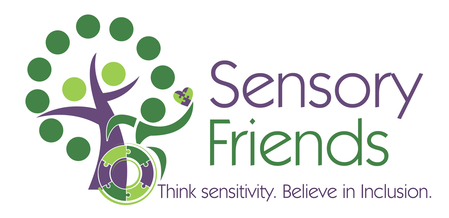Talk to your child about the trip. Talk to your child about what to expect. Even if your child doesn’t communicate effectively yet, you can do some research on the internet. Print pictures of the places you plan to visit, the rides you plan to enjoy, the foods you plan to eat, and the hotel you’ll be staying in. Explain what is to be expected to your child. Watching social stories a couple of weeks before the vacation may help with preparing your child for all the fun they’re going to have! Review the itinerary with your child. It may be a good idea to create a calendar or agenda of your vacation plans and check each one off with your child after you've completed them, and then discuss what comes next!
Create a Melt-down Action Plan: Get together as a family and talk about the things that may upset your child and how you will deal with them. Each member of your family may have a strategy or good idea for how to calm or comfort your child. Every family member can even play a specific role in the action plan. Having a plan of action for obvious triggers would be great too (a crying baby, a humid and hot day out, crowds, lights, noise, etc.). A parent or sibling may know of a song or game that may spark laughter or a smile before the start of a melt-down. Bring favorite toys, stuffed animals, books, blankets, drinks snacks, electronic devices, and anything that brings them joy and can keep them calm. Remember to reward your child for good behavior!
Amusement Parks, Museums, and Recreation: If you plan on visiting a theme park or any other recreational place, there are few things you can do in advance to help prepare for the trip and make it enjoyable for the whole family. In a theme park or museum, there may be crowds and many noises that will make it difficult for you to identify what’s irritating your child if a melt-down occurs. I recommend having a pair of sunglasses and headphones (if your child will wear them). Also, if your child is still young enough for one, allow them to sit in their stroller if they choose to. These things may help to decrease visual and audio stimuli input if their experiencing sensory overload. You can also review the information we're putting together on some of the most famous theme parks in Florida in our "Sensory Friendly Scenes" tab. Next, do a little research on the place you plan to visit. Be sure to call your destination and let them know about your child’s needs. The following are some questions that will help you learn about vacation destination:
* For hotels: you can ask them about their accessible rooms (ADA) and accommodations such as: kitchenettes, microwave, mini-fridge, large bathrooms with benches in the shower might be needed, a pool with a lift, etc. If your child has special healthcare needs, ask about the closest hospital or medical facility. Finally, ask if you can have a room on the quieter side of the hotel if that's something your family needs.
* For theme parks or recreation: Are the admission prices reduced for persons with disabilities?
* Is documentation for the disability required (diagnosis)?
* Almost all parks and recreation locations have a disability guide and can easily be found on the parks website. Ask them where you can find their accessibility guidelines and accommodations?
* Are there family restrooms?
* Is there a map of the park/location with a legend that helps people to locate guest services, restaurants, rest rooms, accessible ramps, and rest areas?
* Is there an accessible pass for people with disabilities for avoiding long lines? What is required to get it?
* Do they have strollers, scooters, or wheelchairs available for rent?
Family Safety: Vacation destinations tend to be crowded. Try to get all family members to dress in the same or similar colors (Red t-shirts). This will make it easier to spot one another and stay together. Also, make sure you have updated pictures of all your children and emergency information. There are many programs that provide your child with their own identification card. Try starting with this one: http://identakid.com.
Traveling with our kids doesn't have to be something you dread, it should be something you look forward to doing. Just like many other lessons we teach our children, such as toileting, dressing, eating, speaking and socializing, we should also be trying to teach them how to adapt to different settings as often as possible. It won't be easy, and there will be times where your visit will be cut short. I can't tell you how many times I've taken my son to a restaurant, park or movie theatre, and we're leaving within ten minutes (or less) of our arrival. Often times, families that try to vacation, discover new things their children enjoy. What's best is families can give their children the opportunity to learn new skills. When we leave our home (even if it’s a short weekend getaway) there is always the chance that our experience will be a challenging one. There are no guarantees for a melt-down free outing, but if we plan it well enough, the experience may make for an enjoyable memory that will last a lifetime.


 RSS Feed
RSS Feed